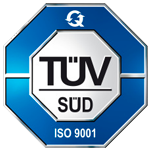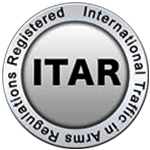How to Choose the Right Industrial Android Tablet for Your Business Needs
In today's rapidly evolving business landscape, the need for efficient and robust technology solutions is more critical than ever. The industrial sector, which is projected to reach a market value of $173.54 billion by 2026, is increasingly leaning towards specialized devices that enhance productivity and durability. One such solution making waves is the Industrial Android tablet, designed to withstand harsh environments and deliver exceptional performance. According to a recent industry report, over 50% of organizations are now adopting mobile tablets for field operations, recognizing their potential to improve workflow and data access on-the-go. As businesses seek to optimize their operations, choosing the right Industrial Android tablet has become a pivotal decision, influencing efficiency, employee satisfaction, and overall operational success. With a plethora of options available, understanding the specific needs of your business is essential for making an informed choice.
Identifying Your Business Requirements for Industrial Android Tablets
When selecting an industrial Android tablet for your business, the first step is to clearly identify your specific business requirements. According to a report by Grand View Research, the global rugged tablet market is expected to reach $1.8 billion by 2025, driven by the increasing demand for mobile solutions in challenging environments. This growth highlights the importance of choosing a device tailored to your unique operational needs, whether that’s durability, battery life, or specialized software compatibility.
Consider the environments in which your tablets will be used; for instance, a manufacturing facility may require a device that can withstand extreme temperatures and physical impacts. A study from MarketsandMarkets indicates that 63% of companies in industrial sectors prioritize durability when evaluating mobile devices. Furthermore, assess the software integration required for your business processes. If your operations rely on specific applications, ensure the tablet can seamlessly support them while providing the necessary processing power. Understanding these key requirements will help you make an informed decision, ensuring the industrial Android tablet you choose enhances productivity and efficiency in your operations.
Evaluating Key Features: Durability, Battery Life, and Performance
When selecting an industrial Android tablet, evaluating key features such as durability, battery life, and performance is essential for optimizing business operations. According to a report by Grand View Research, the global rugged tablet market is expected to reach $2.34 billion by 2026, emphasizing the growing demand for devices that can withstand harsh conditions. A durable tablet should meet or exceed MIL-STD-810G standards, ensuring it can resist dust, moisture, and shock, which are critical for industries like construction and manufacturing.
Battery life is another crucial factor; long-lasting performance ensures that the device can operate throughout demanding work shifts. Research by Gartner indicates that tablets with a battery life of 10 hours or more can significantly improve productivity, reducing downtime related to charging. Meanwhile, performance metrics such as processor speed, RAM, and storage capacity play a vital role in the tablet's ability to run complex applications smoothly. A device with at least 4GB of RAM and an octa-core processor should handle multitasking efficiently, enabling employees to leverage the full capabilities of software tailored to their specific industry needs.
How to Choose the Right Industrial Android Tablet for Your Business Needs - Evaluating Key Features: Durability, Battery Life, and Performance
| Feature | Option 1 | Option 2 | Option 3 |
|---|---|---|---|
| Durability Rating | IP67, MIL-STD-810G | IP65, MIL-STD-810G | IP68, MIL-STD-810H |
| Battery Life | 8 Hours | 12 Hours | 10 Hours |
| Display Size | 7 inches | 10 inches | 8 inches |
| Processor | Quad-Core 1.5 GHz | Octa-Core 2.0 GHz | Hexa-Core 1.8 GHz |
| Operating System | Android 8.1 | Android 10 | Android 9 |
Assessing Software Compatibility and Integration for Industry Needs
When selecting the right industrial Android tablet for business needs, software compatibility and integration play a pivotal role. Many industries rely on various workforce management solutions that encompass software platforms and integration tools designed to streamline attendance tracking, scheduling, and compliance monitoring. As companies aim to enhance operational efficiency, it becomes essential to ensure that the chosen tablet can seamlessly interface with existing software systems, especially with the projected growth of the PLC software market, expected to reach $13.99 billion by 2025.
Moreover, advancements in AI and big data analytics are further pushing the boundaries of software and hardware compatibility. Organizations are encouraged to invest in technologies that not only meet current standards but also adapt to future developments. By performing comprehensive compatibility tests and evaluations, businesses can identify optimal integration solutions that enhance system performance. This proactive approach is crucial as the productivity demands of various industries rise, necessitating a reliable and adaptable technological framework that supports the dynamic landscape of modern business operations.
Understanding Budget Considerations and Cost-Effectiveness
When selecting an industrial Android tablet for your business, understanding budget considerations is crucial. Depending on the features and specifications required, the price range for industrial tablets can vary significantly. Basic models may suffice for simple tasks, but more advanced options equipped with enhanced durability, higher processing power, and specialized software capabilities often come with a premium price tag. It’s essential to evaluate the anticipated usage scenarios to determine if the higher investment will deliver a worthwhile return.
Cost-effectiveness also plays a pivotal role in the decision-making process. Beyond the initial purchase cost, businesses should consider long-term expenses, including maintenance, software updates, and potential repairs. Opting for a tablet with a solid warranty and reliable after-sales support can help mitigate unexpected costs. Additionally, assessing factors like battery life and compatibility with existing systems will further enhance long-term value, ensuring that the chosen device aligns with both current and future operational demands.
Budget Considerations for Industrial Android Tablets
Selecting the Right Brand and Support Services for Longevity
When selecting an industrial Android tablet for your business, the choice of brand plays a crucial role in ensuring reliability and longevity. Opting for established brands with a proven track record in rugged devices can offer peace of mind. These manufacturers often provide rigorous testing and quality assurance, resulting in products that can withstand harsh operating conditions commonly found in industrial environments. Moreover, extensive brand experience usually translates into better product design and functionality, tailored to meet specific business needs.
Support services are another key factor in making your selection. A reliable brand should provide comprehensive customer service, including warranty options and technical support. Look for companies that offer responsive service teams capable of addressing issues promptly, as downtime can be costly for businesses. Additionally, consider brands that provide regular software updates and enhancements, ensuring your devices remain secure and efficient over time. By prioritizing both brand reputation and support services, you can ensure your investment in industrial Android tablets yields long-term benefits for your organization.
NORTH EASTON MACHINE • 218 Elm Street • North Easton, MA 02356 • 508-238-6219

